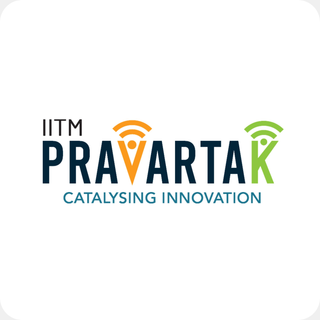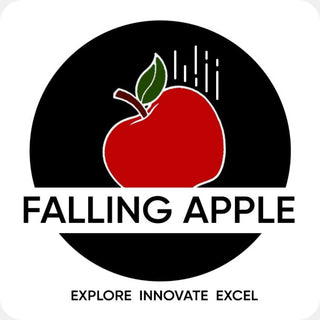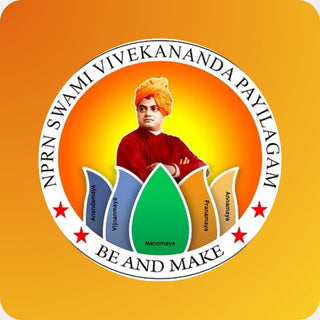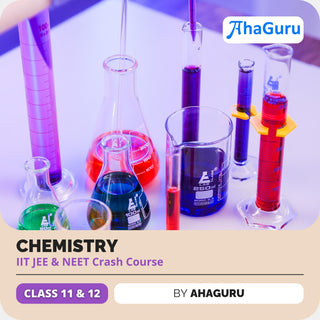You're standing at your local bookstore, watching dozens of parents frantically comparing curriculum guides, syllabus books, and school brochures. The confusion in their eyes mirrors your own as you try to decipher which educational board will best serve your child's future. In one corner, CBSE proponents tout national recognition and competitive exam preparation. Across the aisle, ICSE advocates emphasise comprehensive learning and global readiness. Meanwhile, State Board supporters speak passionately about regional relevance and affordability.
If this scenario feels familiar, you're not alone. Choosing the right educational board for your child is one of the most pivotal decisions Indian parents face today. This choice will influence not just their academic journey but also their career prospects, learning style development, and future opportunities.
In our diverse educational landscape, where traditional values meet modern pedagogical approaches, the question isn't simply which board is "best"—it's which board aligns with your child's unique needs, your family's circumstances, and your long-term aspirations. The decision you make today will shape the next decade of your child's educational experience.
Understanding India's Educational Landscape
The Three Pillars of Indian School Education
India's school education system rests on three primary foundations, each with distinct philosophies and approaches. Understanding these differences is crucial for making an informed choice that will serve your child well throughout their academic journey.
The Central Board of Secondary Education (CBSE) stands as India's most widespread educational board, governing over 26,000 schools across the country and internationally. Established by the Government of India, CBSE follows a structured, national curriculum designed by the National Council of Educational Research and Training (NCERT). The board emphasises core subjects like Mathematics, Science, and Social Studies, with a strong focus on preparing students for national-level competitive examinations such as JEE and NEET.
The Indian Certificate of Secondary Education (ICSE), managed by the Council for the Indian School Certificate Examinations (CISCE), takes a more comprehensive approach to education. Known for its detailed syllabus and emphasis on English language proficiency, ICSE offers a balanced curriculum that covers arts, sciences, and humanities with equal depth. The board promotes analytical thinking, practical knowledge application, and holistic development through project-based learning and internal assessments.
State Boards, unique to each Indian state, design their curricula to reflect regional languages, culture, and educational priorities. From the Maharashtra State Board to the Tamil Nadu Board, each system incorporates local history, cultural context, and regional languages while covering fundamental academic subjects. These boards often provide education in the regional language alongside English, making learning more accessible for students rooted in their local communities.
The Evolution of Educational Choice
The landscape of school choice in India has transformed dramatically over the past two decades. Where once families had limited options based on geography and economics, today's parents navigate a complex web of choices. Research indicates that over 50% of Indian parents now rank regular teacher attendance and proper infrastructure as their top priorities when selecting schools, highlighting a shift toward quality-focused decision-making.
This evolution reflects broader social changes. As India's economy has diversified and families have become more mobile, the need for portable, recognised qualifications has grown. Simultaneously, there has been an increased awareness of different learning styles and the importance of matching educational approaches to individual student needs.
Decoding CBSE: The National Standard
Curriculum Structure and Philosophy
CBSE's strength lies in its systematic, structured approach to education. The curriculum focuses on conceptual understanding rather than rote memorisation, with subjects organised around key themes and learning objectives. Students study core subjects including two languages (typically English and Hindi), Mathematics, Science, and Social Science, with additional electives available in higher classes.
The board's assessment pattern combines continuous evaluation with formal examinations, moving away from the traditional emphasis on year-end tests. This Continuous and Comprehensive Evaluation (CCE) system promotes regular learning and reduces exam pressure while providing ongoing feedback to students and parents.
Advantages for Indian Families
- National Recognition and Mobility: CBSE's most significant advantage is its uniform curriculum across India and abroad. This consistency makes school transfers seamless—a crucial benefit for families in transferable jobs or those relocating frequently. The standardised syllabus ensures that a student moving from Mumbai to Delhi or from India to Dubai can continue their education without disruption.
- Competitive Exam Alignment: The board's curriculum closely aligns with national entrance examinations like JEE, NEET, and UPSC. This alignment gives CBSE students a distinct advantage when preparing for these career-defining tests. Studies show that CBSE students often perform better in engineering and medical entrance exams due to this syllabus congruence.
- Medium of Instruction Flexibility: CBSE schools offer instruction in both English and Hindi, providing families with language choices that suit their preferences and circumstances. Recent policy changes now allow CBSE schools to offer education in 22 regional languages, further expanding accessibility for diverse linguistic communities.
- Balanced Academic Load: Compared to other boards, CBSE maintains a moderate academic workload that allows time for extracurricular activities and personal development. This balance helps prevent student burnout while ensuring comprehensive skill development.
Considerations and Limitations
Despite its advantages, CBSE has certain limitations that parents should consider. The board's focus on core subjects sometimes comes at the expense of creative and humanities subjects. Students interested in the arts, literature, or creative fields might find the curriculum somewhat restrictive compared to more comprehensive alternatives.
The standardised approach, while providing consistency, may not cater to all learning styles. Students who thrive on in-depth exploration or practical application might find the curriculum somewhat surface-level in certain areas.
Exploring ICSE: The Comprehensive Approach
Curriculum Depth and Breadth
ICSE distinguishes itself through its comprehensive, detailed curriculum that covers a wide range of subjects with considerable depth. The board's philosophy centres on providing students with a thorough understanding rather than superficial knowledge across disciplines. Students engage with English Language and Literature, Mathematics, Science (taught as separate subjects—Physics, Chemistry, and Biology), Social Studies, and a second language, along with various elective options.
The curriculum's emphasis on English language proficiency is particularly noteworthy. ICSE students develop strong reading, writing, and communication skills through extensive literature study and language work. This foundation proves invaluable for international education pursuits and careers requiring strong communication abilities.
Assessment and Learning Methodology
ICSE's assessment approach sets it apart from other boards. Internal assessments contribute significantly to final grades, encouraging continuous learning and practical application. Project work, laboratory experiments, and creative assignments form integral parts of the evaluation process, promoting hands-on learning and analytical thinking.
The board uses a percentage-based grading system rather than grades, providing detailed performance feedback. This system, while sometimes creating competitive pressure, offers precise evaluation of student achievement across subjects.
Strengths for Holistic Development
- Global Recognition and Opportunities: ICSE certification enjoys strong international recognition, particularly for students planning to pursue higher education abroad. Many international universities, especially in English-speaking countries, readily accept ICSE qualifications, sometimes without requiring additional qualification bridging courses.
- Language Proficiency: The board's rigorous English curriculum develops exceptional language skills that benefit students in various contexts. This proficiency proves particularly valuable for international competitive exams like the SAT, TOEFL, and IELTS, as well as for careers in communication-intensive fields.
- Critical Thinking Development: ICSE's teaching methodology emphasises analytical thinking and problem-solving over memorisation. Students learn to question, analyse, and synthesise information, developing cognitive skills that serve them well in higher education and professional life.
- Balanced Subject Coverage: Unlike boards that prioritise certain subjects, ICSE maintains equal emphasis on sciences, arts, and humanities. This approach ensures well-rounded development and keeps career options open for students who might discover their interests later in their academic journey.
Challenges to Consider
ICSE's comprehensive approach comes with certain challenges. The detailed syllabus can create a heavier academic workload compared to other boards, potentially causing stress for some students. The limited number of ICSE-affiliated schools, particularly outside urban areas, can create accessibility issues for families in smaller towns or rural regions.
The board's percentage-based evaluation system, while providing detailed feedback, can sometimes create intense competitive pressure among students and parents focused on achieving high marks.
Understanding State Boards: The Regional Connection
Diversity and Local Relevance
State Boards represent the most diverse category in Indian education, with each state designing its curriculum to reflect local needs, languages, and cultural contexts. From the Gujarat State Education Board to the West Bengal Board of Secondary Education, these systems prioritise regional relevance while maintaining national educational standards.
The curriculum typically includes regional language instruction alongside English, local history and geography, and subjects that connect students to their immediate environment. This localised approach helps students maintain strong cultural connections while receiving formal education.
Accessibility and Affordability
State Boards often provide the most accessible and affordable education option for families across India. Government and aided schools following state curricula typically charge minimal fees, making quality education available to students from diverse economic backgrounds. This accessibility has made state boards the choice for millions of Indian families, particularly in rural and semi-urban areas.
The instruction in regional languages removes linguistic barriers for many students, allowing them to learn in their mother tongue during foundational years. Research consistently shows that children learn more effectively when taught in their native language, especially during primary education.
Recognition and Opportunities
Within their respective states, state board qualifications enjoy full recognition and provide pathways to local colleges and universities. Students planning to pursue higher education within their home state often find state board preparation well-aligned with local entrance examinations and admission criteria.
However, the regional focus can create challenges for students seeking opportunities outside their state. Interstate mobility may require additional preparation or qualification bridging, particularly for competitive examinations with national scope.
Limitations and Considerations
The quality and standards of state boards can vary significantly across states, creating inconsistencies in educational outcomes. Some state boards may lag behind national boards in terms of curriculum updates, teaching methodologies, or infrastructure development.
Students from state boards who later wish to pursue national-level competitive examinations may need additional coaching or preparation to bridge the gaps between their school curriculum and exam requirements.
Making the Right Choice: A Decision Framework
Assessing Your Child's Learning Profile
The first step in choosing the right board involves understanding your child's unique learning style and preferences. Some children thrive in structured, systematic environments with clear objectives and predictable routines—characteristics that align well with CBSE's approach. Others flourish when given opportunities for deep exploration and creative expression, making ICSE's comprehensive curriculum more suitable.
- Analytical vs. Creative Learners: Children who enjoy problem-solving, logical reasoning, and systematic approaches often do well in CBSE's structured environment. Those who prefer questioning, exploring, and creative expression might find ICSE's approach more engaging.
- Language Comfort: Consider your child's comfort with English versus regional languages. ICSE requires strong English proficiency from early years, while CBSE offers more flexibility, and state boards often provide regional language options.
- Academic Pressure Tolerance: Evaluate how your child responds to academic pressure and competition. ICSE's detailed curriculum can be demanding, CBSE offers moderate pressure with national focus, while state boards may provide a more relaxed academic environment.
Family Circumstances and Practical Factors
- Geographic Mobility: Families with transferable jobs or those likely to relocate should strongly consider CBSE's national consistency. State boards work well for families rooted in specific regions, while ICSE offers good options for those planning international moves.
- Economic Considerations: State boards typically offer the most affordable education options, CBSE schools range from affordable government institutions to expensive private schools, while ICSE schools tend to be primarily private and more expensive.
- Long-term Goals: Consider your family's long-term educational and career objectives. CBSE aligns well with Indian competitive exams and technical careers, ICSE supports both Indian and international higher education pursuits, while state boards work best for regional opportunities.
Future Career Aspirations
- Engineering and Medical Fields: Students aiming for engineering or medical careers in India benefit significantly from CBSE's alignment with JEE and NEET syllabi. The board's focus on Mathematics and Science provides solid preparation for these competitive examinations.
- International Education: Students planning to pursue higher education abroad, particularly in English-speaking countries, often find ICSE's comprehensive curriculum and English proficiency requirements beneficial. The board's international recognition can ease university admission processes.
- Government Services: CBSE's broad-based curriculum and alignment with UPSC and other civil services examinations make it suitable for students interested in government careers.
- Creative and Humanities Fields: ICSE's balanced approach to arts, languages, and humanities provides stronger foundations for careers in literature, communication, arts, and social sciences.
Regional and Cultural Factors
Consider your family's connection to local culture and language. State boards excel at maintaining cultural connections and regional identity while providing formal education. This can be particularly important for families who value preserving linguistic and cultural heritage.
Urban families with diverse cultural backgrounds might find CBSE's national approach more suitable, while families deeply rooted in regional traditions might prefer state board education that reinforces local values and practices.
The Implementation Journey
Transitioning Between Boards
Sometimes families need to change boards due to relocation, changing aspirations, or evolving understanding of their child's needs. Understanding the challenges and requirements of board transitions can help in planning these moves effectively.
- CBSE to ICSE/State Board: Moving from CBSE to other boards is generally straightforward, as CBSE's national curriculum provides good foundational knowledge that translates well to other systems.
- ICSE to CBSE: This transition can be more challenging due to ICSE's detailed curriculum and different assessment methods. Students may need adjustment time to adapt to CBSE's more structured approach.
- State Board to CBSE/ICSE: This transition often requires the most adjustment, particularly if students have been learning primarily in regional languages. However, with proper support, students can successfully make this transition, especially at a younger age.
Supporting Your Child's Academic Journey
Regardless of which board you choose, your support and involvement remain crucial for your child's success. Each board requires different types of parental engagement and support strategies.
CBSE Students benefit from parents who help them prepare for competitive examinations while maintaining a balance between academics and extracurricular activities. Supporting regular study habits and providing resources for exam preparation proves valuable.
ICSE Students need parents who can support their comprehensive academic workload while encouraging their analytical and creative development. Helping with project work and providing diverse learning experiences enhances their educational journey.
State Board Students often benefit from parents who supplement school learning with additional resources for competitive exam preparation while maintaining strong cultural and linguistic connections.
Creating a Supportive Environment
The board you choose is just one factor in your child's educational success. Creating a home environment that supports learning, curiosity, and personal development remains equally important regardless of the curriculum your child follows.
Encourage reading, critical thinking, and questioning in your daily interactions. Support your child's interests and talents outside the formal curriculum, whether through sports, arts, music, or other activities. Maintain open communication with teachers and school administrators to stay informed about your child's progress and needs.
Remember that every child is unique, and success comes in many forms. The "right" board is the one that aligns with your child's learning style, your family's circumstances, and your long-term goals while providing the support and challenge your child needs to thrive.
Looking Ahead: Preparing for Success
The Importance of School Quality
While choosing the right board provides an important framework for your child's education, the quality of the specific school and teachers matters equally, if not more. An excellent school following any board can provide superior education compared to a mediocre school following the "ideal" board for your situation.
Research schools thoroughly, visiting campuses, meeting teachers, and understanding their teaching methodologies. Look for schools that align with your chosen board's philosophy while providing additional support, facilities, and opportunities that match your child's needs.
Adaptability and Future Readiness
In our rapidly changing world, the ability to adapt, think critically, and continue learning throughout life may matter more than the specific board credentials your child earns. Focus on developing these meta-skills alongside board-specific learning.
Encourage your child to be curious, ask questions, solve problems creatively, and work collaboratively with others. These skills will serve them well regardless of which board they follow or which career path they eventually choose.
Maintaining Perspective
Remember that your board choice, while important, is not irreversible or destiny-determining. Many successful individuals have emerged from all types of educational backgrounds. What matters most is providing your child with a supportive, challenging, and nurturing environment where they can develop their potential.
Stay flexible and be prepared to reassess your choices as your child grows and their interests and abilities become clearer. The goal is not to make the perfect choice from the beginning, but to make thoughtful decisions based on the best information available while remaining open to adjustments as needed.
Trust in your child's ability to succeed and your family's ability to support that success, regardless of which educational path you choose. With thoughtful consideration, proper support, and ongoing engagement, your child can thrive in any well-chosen educational environment.
The journey of education is a marathon, not a sprint. The board you choose provides the track, but your child's effort, your family's support, and the quality of teaching they receive will determine how successfully they run the race. Choose wisely, support consistently, and trust in the process of learning and growth that will unfold over the years ahead.
Your child's educational journey is unique, and the right choice is the one that honours their individual needs while preparing them for a successful and fulfilling future. Take time to gather information, consult with educators and other parents, and most importantly, consider what you know about your child's learning style, interests, and aspirations. With careful thought and planning, you can make a choice that serves your child well throughout their academic journey and beyond.
Sources
- Satyameva Jayate International School. (2025). CBSE vs ICSE vs State Board. Retrieved from https://www.satyamevajayate.co.in/blog/cbse-vs-icse-vs-state-board/
- BVRTSE. (2025). How to Choose Boards for Your Child? Parent's Guide 2025. Retrieved from https://bvrtse.in/blog/how-to-choose-boards-for-your-child/
- Deeksha Learning. (2025). State vs. CBSE vs. ICSE Curriculum: Which Works Best in PU? Retrieved from https://deekshalearning.com/blog/state-vs-cbse-vs-icse-curriculum-which-works-best-in-pu/
- TIS Agra. (2025). CBSE vs ICSE vs State Board: Which Board is Best in India. Retrieved from https://www.tisagra.com/blog/cbse-vs-icse-vs-state-board-which-board-is-best-in-india
- VIBGYOR Reading Corner. (2024). Choosing the Right Board for Your Child. Retrieved from https://www.vgos.org/blog/2024/09/choosing-the-right-board-for-your-child.html
- PW Store. (2025). ICSE vs CBSE: Check the Differences and Similarities. Retrieved from https://store.pw.live/blogs/school-exams/icse-vs-cbse-check-the-differences-and-similarities
- DPS Warangal. (2025). CBSE vs ICSE vs State: choosing the right board for your child. Retrieved from https://dpswarangal.in/blogs/cbse-vs-icse-vs-state-choosing-the-right-board-for-your-child/
- Foundation School. (2024). Which Board is Best in India? The Ultimate Guide. Retrieved from https://foundationschool.edu.in/blog/which-board-is-best-in-india/
- Mittsure. (2025). CBSE vs State Board vs ICSE | Key Differences Explained. Retrieved from https://mittsure.com/blog-details/cbse-vs-state-board-vs-icse
- Times of India. (2023). State Board vs CBSE vs ICSE: What's the difference? Retrieved from https://timesofindia.indiatimes.com/education/web-stories/state-board-vs-cbse-vs-icse-whats-the-difference/photostory/105384033.cms
- Samsidh. (2025). 8 Tips for Parents on Choosing the Right School for Their Child. Retrieved from https://www.samsidh.in/8-tips-for-parents-on-choosing-the-right-school-for-their-child/
- CIS Sikar. (2025). Difference Between CBSE and ICSE | Which Board is Better. Retrieved from https://cissikar.com/blog/what-is-difference-between-cbse-and-icse
- YouTube. (2023). CBSE vs STATE BOARD vs ICSE | Best Career Options. Retrieved from https://www.youtube.com/watch?v=L5xBi0dGOR0
- Phonic Smart. (2025). Top Tips To Choose The Best Education Board In India. Retrieved from https://www.phonicsmart.com/best-education-board-in-india-for-childrens/
- Aachi Global School. (2024). 8 Different Types of Education Boards in India 2025: CBSE, CAIE. Retrieved from https://aachiglobalschool.com/blogs/8-different-types-of-education-boards-in-india-2024-cbse-caie-more/
- Superprof. (2024). Education Boards In India: CBSE, ICSE & State Board [2024]. Retrieved from https://www.superprof.co.in/blog/board-examinations-in-india/
- VSI International School. (2024). How to Choose the Right School for your Child (Updated 2025). Retrieved from https://www.vsiinternational.in/how-to-choose-a-school-for-your-child-in-india/
- YouTube. (2023). Which is Tougher CBSE, ICSE or State Board. Retrieved from https://www.youtube.com/watch?v=CJO9KAE13sM
- SchoolServ. (2025). How are parents selecting a school for their child? Retrieved from https://www.schoolserv.in/how-are-parents-selecting-a-school-for-their-child/
- Orchids International School. (2023). CBSE vs ICSE vs IGCSE: Education Board. Retrieved from https://www.orchidsinternationalschool.com/blog/cbse-vs-icse-vs-igcse-vs-state-board-choosing-the-right-board-for-your-child
- LEAD School. (2024). All about CBSE Syllabus. Retrieved from https://leadschool.in/school-owner/solutions/cbse-syllabus/
- Redbridge International Academy. (2025). Inside the ICSE Curriculum. Retrieved from https://rbia.in/blog/icse-curriculum-whats-really-inside/
- Central Institute of Indian Languages. About Regional Language Centres. Retrieved from https://www.ciil.org/aboutrlc.php
- CBSE Academic Unit. (2022). Curriculum/Syllabus 2024-25. Retrieved from https://cbseacademic.nic.in/curriculum_2025.html
- Almond Books. (2022). Understanding the ICSE English syllabus. Retrieved from https://online.almondbooks.com/blogs/creative-minds/understanding-icse-english-syllabus
- NexSchools. (2025). Structure of State Board Schools. Retrieved from http://www.nexschools.com/article-details/State-Board-Schools-/53.aspx
- CBSE Academic Unit. (2025). Curriculum/Syllabus 2025-26. Retrieved from https://cbseacademic.nic.in/curriculum_2026.html
- NHPS. (2025). Gain Insight Into ICSE Full Form, Subjects and Marking. Retrieved from https://nhps.in/blog/icse-full-form/
- Varthana. (2025). CBSE vs State Board: Key Differences and Impact on Students. Retrieved from https://varthana.com/student/cbse-vs-state-boards-curriculum-differences-and-their-impact-on-students/
- BYJU'S. (2023). CBSE Syllabus for Class 1 to 12. Retrieved from https://byjus.com/cbse/cbse-syllabus/
- Physics Wallah. (2025). ICSE Class 10 English Syllabus 2025-26, PDF Download. Retrieved from https://www.pw.live/school-prep/exams/icse-class-10-english-syllabus
- Ministry of Education. (2023). National Curriculum Framework for School Education 2023. Retrieved from https://www.education.gov.in/sites/upload_files/mhrd/files/infocus_slider/NCF-School-Education-Pre-Draft.pdf
- Vedantu. (2025). CBSE Syllabus 2025-26 | All Classes & Subjects Curriculum PDF. Retrieved from https://www.vedantu.com/syllabus/cbse-syllabus
- Arihant Academy. (2024). Exploring the Unique Features of the ICSE Syllabus. Retrieved from https://arihantacademy.com/blog/exploring-unique-features-of-icse-syllabus/
- Tutoroot. (2023). CBSE vs State Board: Which Curriculum is Right for You? Retrieved from https://www.tutoroot.com/blog/cbse-vs-state-board-which-curriculum-is-right-for-you/
- S3waas. (2024). Curriculum for the Academic Year 2024-25. Retrieved from https://cdnbbsr.s3waas.gov.in/s3kv01f8f1a440b8ec458a2b120d87105c/uploads/2024/05/2024052222.pdf
- JIRS Academy. (2025). ICSE Full Form: A Comprehensive Educational Guide. Retrieved from https://www.jirs.ac.in/blogs/icse-full-form
- My Private Tutor. Understanding The Educational State Boards in India and Their Significance. Retrieved from https://www.myprivatetutor.com/blog/understanding-the-educational-state-boards-in-india-and-their-significance
- Vedantu. (2025). CBSE Class 12 All Subjects Syllabus 2025-26 | Free PDF. Retrieved from https://www.vedantu.com/syllabus/cbse-class-12-syllabus
- BYJU'S. (2023). ICSE Syllabus for Classes 1 to 10. Retrieved from https://byjus.com/icse/icse-syllabus/
- University of Liverpool. Determinants of School Choice: Evidence from India. Retrieved from https://www.liverpool.ac.uk/media/livacuk/schoolofmanagement/docs/Determinants,of,School,Choice,Evidence,from,India.pdf
- Kenali Lily School. (2024). Parents' Guide to Choosing the Best CBSE School in India. Retrieved from https://kenalilyschoolforchildren.wordpress.com/2024/06/13/parents-guide-to-choosing-the-best-cbse-school-in-india/
- Asmem Pros. (2023). CBSE vs State Board Comparison & Differences: Which Is Better? Retrieved from https://asmempros.com/blog/cbse-vs-state-board-comparison-and-differences/
- Azim Premji Foundation. School Choice in Rural India: Perceptions and Realities in Four States. Retrieved from http://publications.azimpremjifoundation.org/2150/1/School%20Choice%20in%20Rural%20India_Perceptions%20and%20Realities%20in%20Four%20States.pdf
- CBSE360. (2025). CBSE vs ICSE vs State Board: Which is Better for Students in 2025? Retrieved from https://www.cbse360.com/blog/cbse-vs-icse-vs-state-board
- Artha Global. (2025). Survey | What Factors Influence Parents' School Choice? Retrieved from https://artha.global/project/assessing-educational-needs/
- Vedyavani. (2025). CBSE, ICSE, IB, or State Board? A Parent's Guide to Choosing the Best Curriculum. Retrieved from https://www.vedyavani.com/cbse-icse-ib-or-state-board-a-parents-guide-to-choosing-the-best-curriculum/
- JIRS Academy. (2024). ICSE vs CBSE: Which Educational Board is Better? Retrieved from https://www.jirs.ac.in/blogs/icse-vs-cbse
- NCERT. An Analysis of Factors Contributing to the Choice of School. Retrieved from http://ejournals.ncert.gov.in/index.php/jie/article/download/3043/2915/5599
- JBMS. (2024). How To Choose The Right School For Your Child: A Parent's Guide. Retrieved from https://jbms.in/how-to-choose-the-right-school-for-your-child/
- Suchitra. Factors to Consider When Choosing the Right School for Your Child. Retrieved from https://suchitra.in/blogs/factors-to-consider-when-choosing-the-right-school-for-your-child/
- BluBWorld. (2024). Understanding Education Boards in India: A Guide for Parents and Students. Retrieved from https://www.blubworld.com/post/understanding-education-boards-in-india-a-guide-for-parents-and-students
- Azim Premji University. School choice in low-information environments. Retrieved from https://azimpremjiuniversity.edu.in/field-studies-in-education/school-choice-in-low-information-environments
- No More Class. (2024). Education Boards in India: A Guide for Parents and Students. Retrieved from https://nomoreclass.com/education-boards-in-india-guide/
- The HDFC School. (2020). Difference Between CBSE and ICSE - Which is Better? Retrieved from https://www.thehdfcschool.com/blog/icse-vs-cbse.html
- EduFund. (2025). Advantages and Disadvantages of State Board in India. Retrieved from https://www.edufund.in/blog/advantages-and-disadvantages-of-state-board-in-india/
- Times of India. (2023). CBSE allows Indian languages as medium of instruction. Retrieved from https://timesofindia.indiatimes.com/education/news/cbse-allows-indian-languages-at-medium-of-instruction/articleshow/102022881.cms
- Interval Education. (2024). CBSE vs. State Board: Major Differences & Detailed Comparison. Retrieved from https://www.intervaledu.com/blogs/cbse-vs-state-syllabus-which-is-better-for-your-child/
- St. Francis Xavier School. (2025). What are the benefits of ICSE Board. Retrieved from https://www.stfxonline.com/what-are-the-benefits-of-the-icse-board/
- Education Times. (2023). CBSE schools to have 22 Indian languages as medium of instruction. Retrieved from https://www.educationtimes.com/article/campus-beat-college-life/99733805/educational-policy-cbseschools-to-have22-indian-languages-asmedium-ofinstruction-for-better-learning
- Deeksha Learning. (2025). Advantages and Disadvantages of ICSE Board. Retrieved from https://deekshalearning.com/blog/advantages-and-disadvantages-of-icse-board/
- Rawat Public School. (2022). Why Choose CBSE Board for your Child? Retrieved from https://www.rawatpublicschool.com/blog/why-choose-cbse-board-for-your-child
- Schooped. Understanding Educational Boards in India: Rankings, Advantages. Retrieved from https://www.schooped.com/blog/navigating-educational-boards-in-india-ranking-pros-and-cons-for-teaching-careers
- Edu123. (2025). What Is the ICSE Curriculum? Key Features & Benefits Explained. Retrieved from https://blog.edu123.in/icse-curriculum/
- Bodhi Bhavans. What Are Advantages Of Choosing A CBSE School For Your Child? Retrieved from https://www.bodhibhavans.org/what-are-advantages-of-choosing-a-cbse-school-for-your-child/
- Book Your Career. (2025). CBSE vs State Board: Which is Better After 10th & Why? Retrieved from https://www.bookyourcareer.in/cbse-vs-state-board-choose-better-future-career-growth/
- Arihant Academy. (2025). The Advantage of Studying Under the ICSE Curriculum. Retrieved from https://arihantacademy.com/blog/the-advantage-of-studying-under-the-icse-curriculum/
- JIRS Academy. (2025). CBSE Board Benefits: Key Advantages and Academic Edge. Retrieved from https://www.jirs.ac.in/blogs/what-you-should-know-benefits-of-enrolling-your-child-in-cbse-board
- RIS Gandhinagar. (2024). CBSE vs. State Board: Pros and Cons for Parents. Retrieved from https://risgandhinagar.in/cbse-vs-state-board-pros-and-cons-for-parent/
- VIS. (2025). 9 Benefits of Choosing an ICSE Curriculum. Retrieved from https://vischennai.ac.in/9-benefits-of-choosing-an-icse-curriculum/
- Mayoor School Jaipur. (2025). CBSE vs. Other Boards: Which One Is Right for Your Child? Retrieved from https://mayoorschooljaipur.org/cbse-vs-other-educational-boards-in-india
- 21K School. (2025). Understanding the Benefits of State Boards Shifting to CBSE. Retrieved from https://www.21kschool.com/in/blog/benefits-of-state-boards-shifting-to-cbse/
- Nalanda School. (2024). ICSC vs. Other Educational Boards: Key Differences and Benefits. Retrieved from https://nalandaschool.org/icsc-vs-cbse-vs-other-educational-boards-differences/
- CollegeDekho. (2025). How to Change Board From ICSE to CBSE? Retrieved from https://www.collegedekho.com/articles/how-to-change-board-from-icse-to-cbse-brd/
- PMC. (2024). Intergenerational education mobility in India: nonlinearity and the Great Gatsby Curve. Retrieved from https://pmc.ncbi.nlm.nih.gov/articles/PMC11465184/
- Interval Education. (2024). Which Board is Best in India? A Complete Comparison Guide. Retrieved from https://www.intervaledu.com/blogs/which-board-is-best-in-india/
- Go4Reviews. (2024). Is movement to another board allowed in class 10th or class 12th. Retrieved from https://go4reviews.in/2024/11/is-movement-to-another-board-allowed-in-class-10th-or-class-12th/
- Migration Letters. Educational Attainment And Intergenerational Mobility In India. Retrieved from https://migrationletters.com/index.php/ml/article/download/7603/4926/20035
- San Academy. (2025). How to Transfer Your Child from Another Board to CBSE in 2025. Retrieved from https://www.sanacademy.edu.in/cbse_school_admission_in_2025
- SAGE Journals. The Impact of Parents' Educational and Occupational Footprints on Children's Educational Opportunities. Retrieved from https://journals.sagepub.com/doi/10.1177/09731741231190384
- Book Your Career. (2025). Educational Boards in India: CBSE, ICSE, IB, IGCSE Guide. Retrieved from https://www.bookyourcareer.in/different-educational-boards-in-india-cbse-icse-ib/
- Rediff. (2011). Shifting School Boards? Here's A Guide. Retrieved from https://www.rediff.com/getahead/slide-show/slide-show-1-career-shifting-school-boards-heres-a-guide/20110505.htm
- Paul Novosad. Intergenerational Mobility in India: New Measures and Estimates. Retrieved from https://paulnovosad.com/pdf/anr-india-mobility.pdf
- EarthLore Academy. (2024). CBSE vs. ICSE: A Comparative Analysis of Education Systems. Retrieved from https://earthloreacademy.com/cbse-vs-icse-a-comparative-analysis-of-education-systems/
- Careers360. (2021). Hi My Son is studying in 7th and due to Job Change he has to change the School. Retrieved from https://www.careers360.com/question-hi-my-son-is-studying-in-7th-and-due-to-job-change-he-has-to-change-the-school-he-in-cbse-please-anyone-can-guide-the-seat-in-cbse/state-board-if-he-continue-study-in-cbse-or-better-to-change-to-state-board
- GIPE. (2024). Education and Intergenerational Mobility. Retrieved from https://gipe.ac.in/education-and-intergenerational-mobility/
- Shiksha. (2017). Is it possible to change my board from state to CBSE in 12th standard? Retrieved from https://ask.shiksha.com/is-it-possible-to-change-my-board-from-state-to-cbse-in-12th-standard-qna-4360426
- World Bank. (2012). Caste Disadvantage, or Gender and Urban bias? Educational Mobility in Post-Reform India. Retrieved from https://blogs.worldbank.org/en/developmenttalk/caste-disadvantage-or-gender-and-urban-bias-educational-mobility-in-post-reform-india
- Eklavya School Jal. CBSE vs ICSE vs State Board: Which One is Best? Retrieved from https://eklavyaschooljal.org/cbse-vs-icse-vs-state-board/
- LinkedIn. (2024). A Parent's Guide to Educational Options in India. Retrieved from https://www.linkedin.com/pulse/choosing-right-board-your-child-parents-guide-educational-nlhrc
- Vishwajyot. (2024). Assessing State Board, ICSE, CBSE, and IB for the Best Fit. Retrieved from https://vishwajyot.com/selecting-the-ideal-career-path-evaluating-state-board-icse-cbse-and-ib-board-options/
- Skoodos. (2022). School Selection Checklist for Indian Parents | Find the Right Fit. Retrieved from https://skoodos.com/en/blog/school-selection-checklist-parents-india
- JAIN College. (2025). Difference Between CBSE and ICSE Board? Retrieved from https://www.jaincollege.ac.in/blogs/difference-between-cbse-and-icse-board
- Gitanjali International Schools. (2025). Checklist for Selecting the Best School in Gurugram. Retrieved from https://gitanjaliinternationalschools.com/blog/checklist-for-selecting-the-best-school-in-gurugram/
- GCER. (2025). Choosing the Right Board for Your Child: Is CBSE the Best Option? Retrieved from https://gcer.org.in/choosing-the-right-board-for-your-child-is-cbse-the-best-option
- Billabong High School Noida. (2025). A Parent's Checklist: What to Look for in the Best School. Retrieved from https://www.billabonghighschoolnoida.com/a-parents-checklist-what-to-look-for-in-the-best-school/
- Aditya Birla World Academy. How To Choose The Correct Board For Your Toddler. Retrieved from https://www.adityabirlaworldacademy.com/blog/how-to-choose-the-correct-board-for-your-toddler
- Ministry of Education. GUIDELINES FOR PARENT PARTICIPATION IN HOME-BASED LEARNING. Retrieved from https://www.education.gov.in/sites/upload_files/mhrd/files/document-reports/MoE_Home_Learning_Guidelines.pdf
- MindGroom. (2024). How to Choose the Right Board - CBSE, ICSE, IB or State board. Retrieved from https://www.mindgroom.com/blog/how-to-choose-the-right-board-cbse-icse-ib-or-state-board/
- Vedantu. (2025). CBSE Vs ICSE - Find the Difference and Know the Best Board. Retrieved from https://www.vedantu.com/blog/difference-between-cbse-and-icse-and-know-the-best-board
- Mentoria. (2023). Choosing the Right School For Your Child: A Checklist for Parents. Retrieved from https://blog.mentoria.com/choosing-the-right-school-for-your-child-a-checklist-for-parents/
- JBCN School. Which Education Board is the Right Board for Your Child? Retrieved from https://www.jbcnschool.edu.in/blog/which-education-board-is-the-right-board-for-your-child/
- Invest4Edu. Top Education Boards in India: How to Choose the Right One? Retrieved from https://www.invest4edu.com/blog/top-educational-boards-in-india
- NexSchools. (2025). How to Choose School Boards in India. Retrieved from http://www.nexschools.com/article-details/-How-to-Choose-School-Boards-in-India/52.aspx
- DPS Warangal. A guide to finding the right school board for your child in India. Retrieved from https://dpswarangal.in/blogs/a-guide-to-finding-the-right-school-board-for-your-child-in-india/





















































